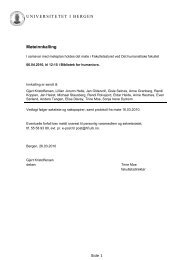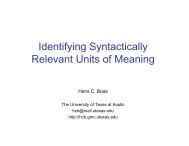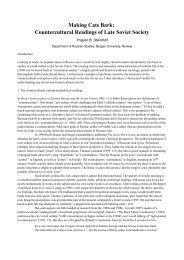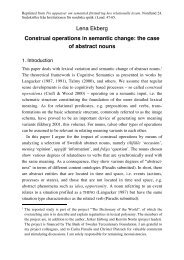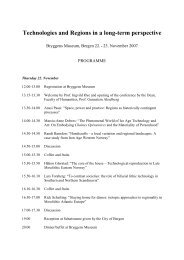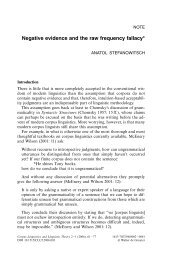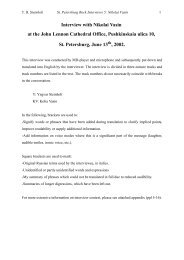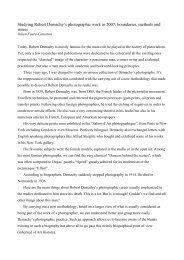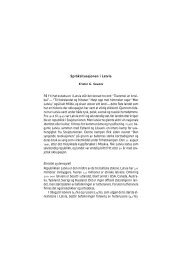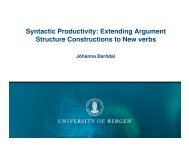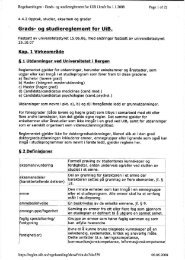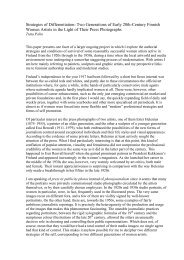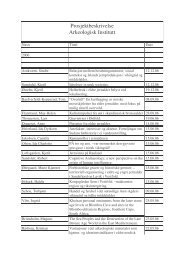THE BOOK OF POEMS IN TWENTIETH-CENTURY ... - TopReferat
THE BOOK OF POEMS IN TWENTIETH-CENTURY ... - TopReferat
THE BOOK OF POEMS IN TWENTIETH-CENTURY ... - TopReferat
Create successful ePaper yourself
Turn your PDF publications into a flip-book with our unique Google optimized e-Paper software.
heart. His frenzied tone and hatred for all things tender and happy recall Pereyaslavtsev's<br />
self-hatred, or more accurately, hatred of Bol'shakov. He buried Bol'shakov along with<br />
his stupid passion, with his love (Я похоронил его с его глупой восторженностью, с<br />
его любовью (125)). Like Pereyaslavtsev, Khodasevich's persona takes pleasure only in<br />
the violent ends of others—others as remote and exotic as American settlers and Carmen.<br />
Khodasevich published "За окном…" in "Утро России" in February 1916,<br />
shortly before Muni's suicide. He chose to republish it in the second edition of<br />
Счастливый домик (1921) rather than the earlier first edition of Путем зерна (1919-<br />
20). This decision suggests that Khodasevich associated the Pereyaslavtsev voice with<br />
his youthful, more decadent poetry and biography. The poem is irresponsible, and, in<br />
light of Muni's suicide, cruel. Still he feels it is significant enough to add to his second<br />
book. The symbolist experiments with двойничество and жизнетворчество are too<br />
important to ignore. By 1919, when he wrote "Рыбак," Khodasevich realized the danger<br />
of these experiments. He returns to the original self—to the voice of Bol'shakov, the<br />
"true" side of the double—and relieves the fisherman/Bol'shakov/Muni of his<br />
psychological struggle and thus his responsibility. The final darkness in Khodasevich's<br />
poem is thus bleaker than in Muni's skazka—it is entirely hopeless, inevitable, fatal.<br />
Khodasevich excised "Рыбак" from the 1927 edition of Путем зерна, severing<br />
ties to Muni, to his previous book, and to his youthful symbolist experiments. He<br />
gradually turned to an entirely different form of двойничество—a potentially positive<br />
form. Instead of escaping outside of himself to create a new identity, he struggled with<br />
the split between body and soul within himself. While the first edition of Путем зерна<br />
seems more heavily weighted towards frustration with this split ("В заботах каждого<br />
44



